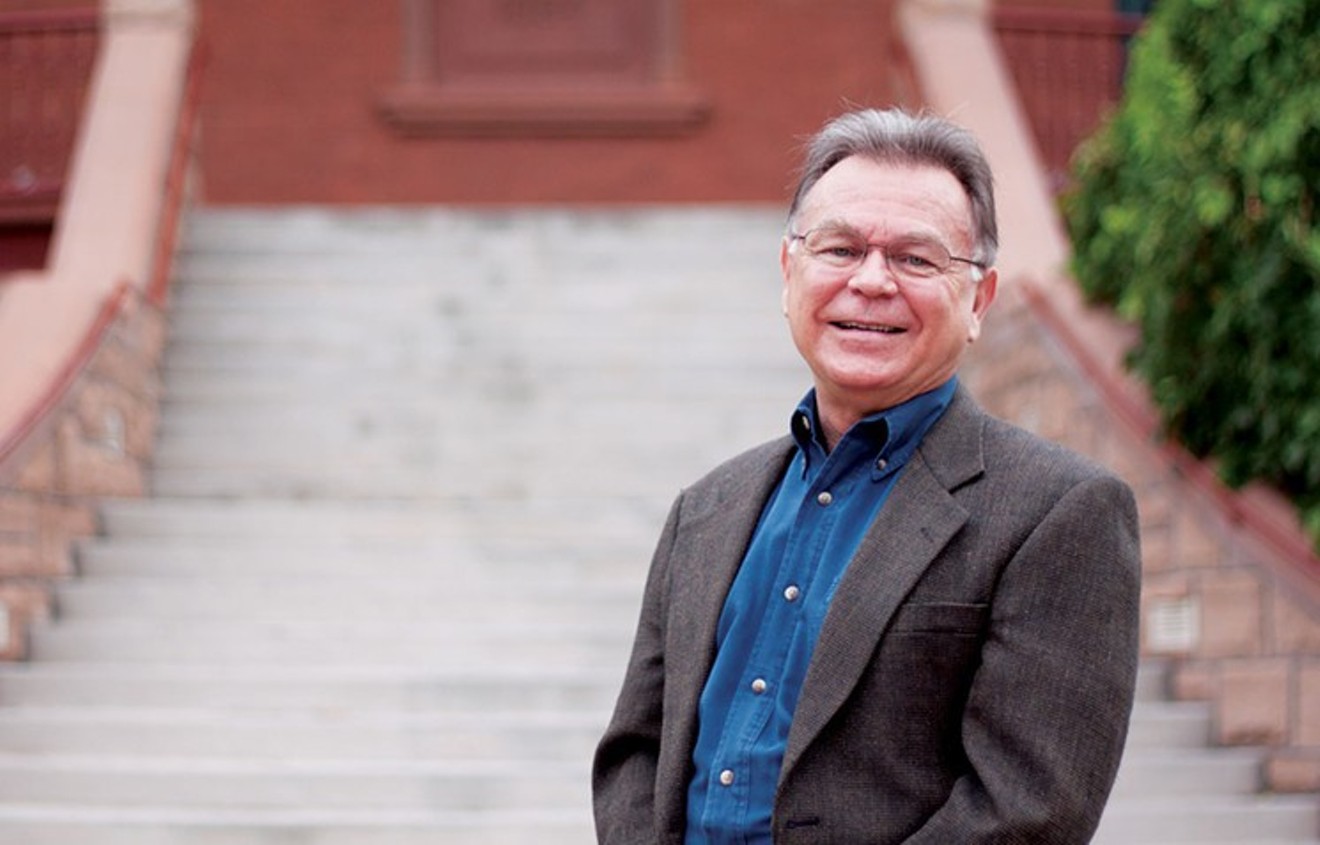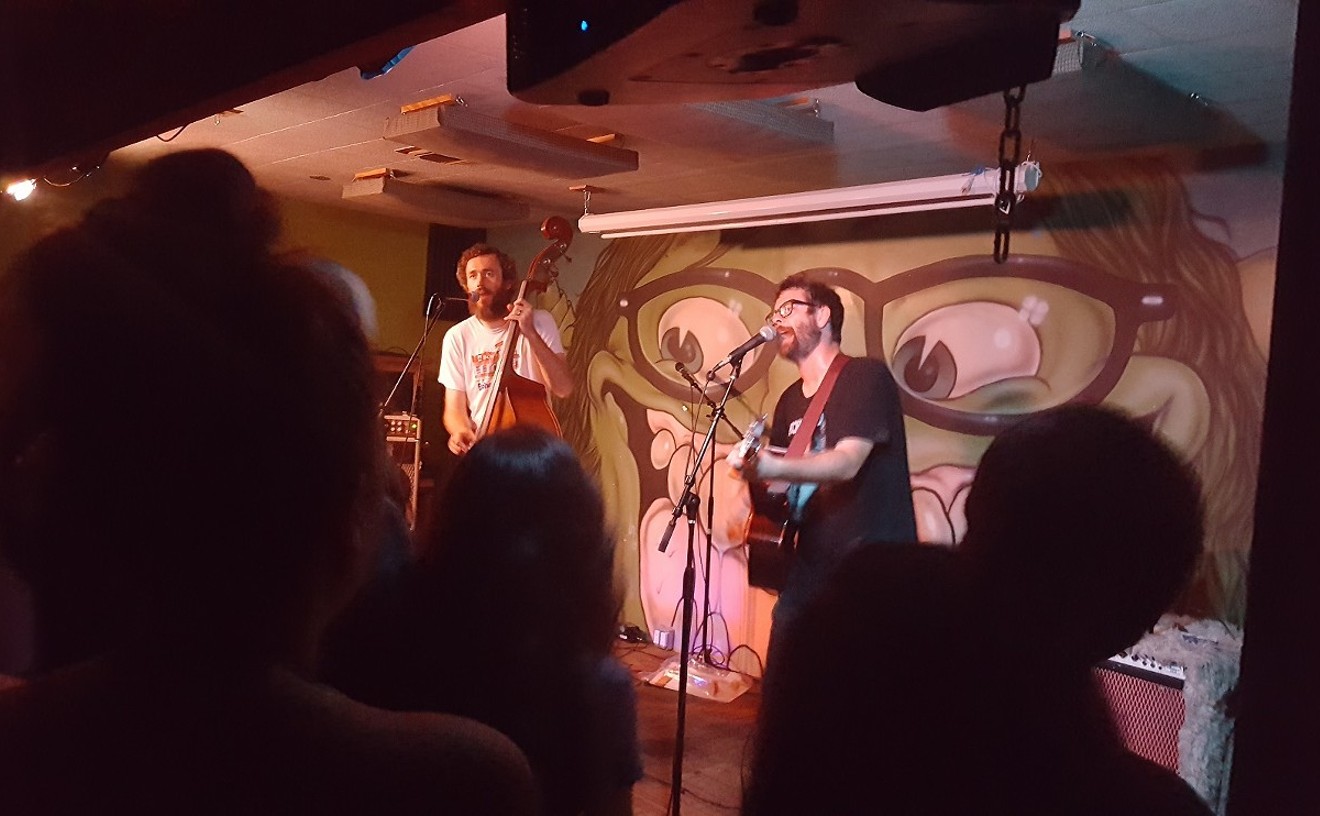Following months-long negotiations, Arizona State University named poet laureate Alberto Ríos as director of the Virginia G. Piper Center for Creative Writing.
“Everything is new,” exclaims Ríos, the ASU Regents’ Professor who’s also served as the Katharine C. Turner Distinguished Chair in English since 2003. “And we’re going 100 miles an hour.”
All that fast newness includes, Ríos promises, a long list of opportunities for those interested in intellectual pursuits. “The center will become a place for visiting writers to present performative work. There will be classes for the public. People want to become better writers, and one way to do that is to let them meet writers they admire who can give them a behind the scenes look at a writing career. Getting those people out here is on my list.”
Housed in the College of Liberal Arts and Sciences, the center hosts a wide variety of literary events and public writing programs, as well as offering scholarships and fellowships to graduate students in its MFA writing program. Ríos who’s been with ASU for 30 years, plans to continue the work of Professor Jewell Parker Rhodes, founding director of the center, and has negotiated extra support for projects he’s wanted to see the facility take on for some time.
His is a hopeful appointment to an expensive project, one writing community members have been critical of in recent years. Ríos has authored more than a dozen books, including poetry and short story collections and Capirotada: A Nogales Memoir, about growing up on the Mexico-Arizona border. His writing is taught in classrooms around the country and has been collected in more than 300 anthologies; he’s received the Governor's Arts Award, the Walt Whitman Award and the Western States Book Award for Fiction. His work is regularly taught, translated and included in more than 300 national and international anthologies. In 2014, he was elected to the Board of Chancellors of the Academy of American Poets.
Ríos’ first order of business, he says, is to hire a managing editor for Hayden’s Ferry Review, the university’s literary journal. The Review, founded in 1986, will continue to be a student-run periodical. But Ríos one of the publication’s founders, has big plans for its future.
“I want to take our 30 years of archives and translate them into every possible language we can find,” explains Ríos, who replaces interim director Matt Bell. “Going forward, we want to be able to tell writers published in Hayden’s Ferry Review that they are literally speaking to everyone. It’s a signal of respect to all cultures, and a game changer, to present these works in dozens of different languages.”
Ríos will manage this major task, which will find him investigating how intellectual property rights work and securing a team of translators to interpret each previously published HFR story and poem. Many of these translators will be students applying for an exemption from a language course, who will be asked to translate a story or poem from HFR as part of their application.
Ríos plans also to hire a community outreach director and to reinstate the recently retired ASU Young Writers program. Another early project is something Rios calls Windshield Theater, which would archive recorded narratives of local drives from, for example, Phoenix to Tucson.
“These narratives would be a moving classroom,” Ríos explains. “They’d offer information about our geography not in the abstract but in literal and emotional reporting. This one’s also in the list of ideas.”
It’s a long list, one that includes addressing the center’s critics, some of whom have complained that its classes are too expensive and its community outreach lacking.
“We must re-engage with community,” Ríos grees. “We’re providing an artistic heartbeat and a desire to serve everyone who’s interested in expression and culture and writing. But we’re aware that a heartbeat isn’t enough. If we’re going to serve everyone who has these interests, we need to do it right. If this were a surfing school, we’d have to provide the best wave. We want to be able to say, ‘Come and get it!’ We want to help people surf better.”
[
{
"name": "Air - MediumRectangle - Inline Content - Mobile Display Size",
"component": "18478561",
"insertPoint": "2",
"requiredCountToDisplay": "2"
},{
"name": "Editor Picks",
"component": "16759093",
"insertPoint": "4",
"requiredCountToDisplay": "1"
},{
"name": "Inline Links",
"component": "17980324",
"insertPoint": "8th",
"startingPoint": 8,
"requiredCountToDisplay": "7",
"maxInsertions": 25
},{
"name": "Air - MediumRectangle - Combo - Inline Content",
"component": "16759092",
"insertPoint": "8th",
"startingPoint": 8,
"requiredCountToDisplay": "7",
"maxInsertions": 25
},{
"name": "Inline Links",
"component": "17980324",
"insertPoint": "8th",
"startingPoint": 12,
"requiredCountToDisplay": "11",
"maxInsertions": 24
},{
"name": "Air - Leaderboard Tower - Combo - Inline Content",
"component": "16759094",
"insertPoint": "8th",
"startingPoint": 12,
"requiredCountToDisplay": "11",
"maxInsertions": 24
}
]











